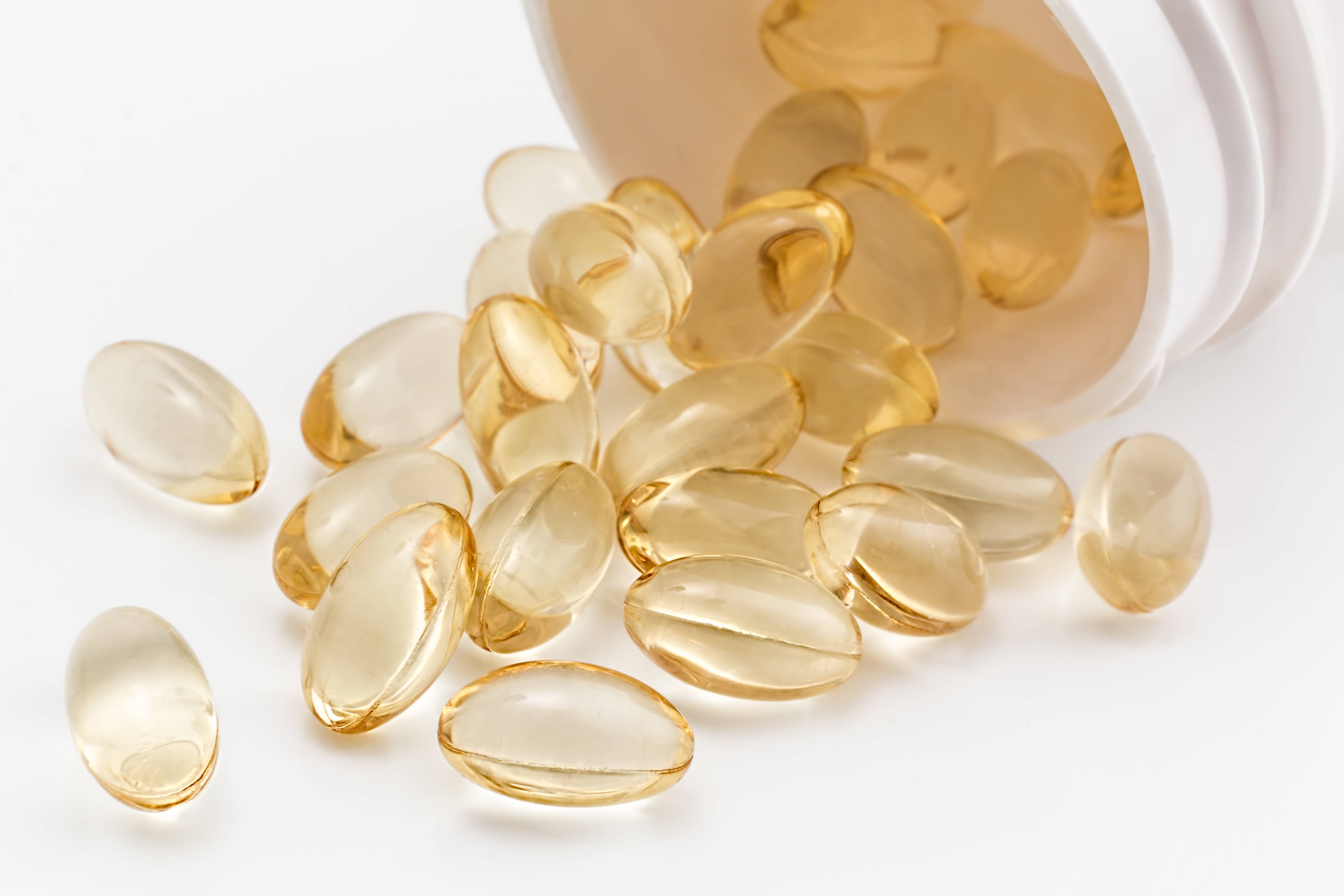
CBD may be a good option for chronic inflammation. There are many types of CBD, but not all CBD is effective in treating inflammation. In fact, some forms of CBD can increase your risk of heart attack, while others can help you get relief from inflammation. Here's an overview of some of most effective CBD treatments for inflammation. Continue reading for more information.
Heart attacks can be increased by taking NSAIDs
A recent study found that NSAIDs (also known as nonsteroidal anti-inflammatory drug) are associated with an increased risk for heart attacks. Researchers examined 61,460 incidents of myocardial damage. Researchers found an increase in acute myocardial injury risk due to current NSAID usage. They noted that the risk was higher after the first week of treatment, but did not increase with longer use. The study didn't examine the relationship between NSAIDs use and heart attacks in healthy people, but instead the risk was observed for all traditional NSAIDs, even naproxen.
The long-term usage of NSAIDs comes with some potential risks. These include strokes and heart attacks. Patients with heart problems should avoid NSAIDs. Those not suffering from heart disease should take them only when they are needed. The lowest effective dose of NSAIDs and the longest duration should be used. It is important to inform patients about the possible side effects of NSAIDs.

CBD lowers inflammation cytokines
CBD is being investigated as an asthma treatment. The clinical trial results show promising results. The serum levels of six different cytokines were significantly reduced following CBD treatment. CBD treatment was also found to decrease the expression of myeloperoxidase which is a gene responsible for controlling lung inflammation. Even though the drug was tested in rats, side effects are unknown. It is still a promising candidate for future uses in patients with inflammatory disorder.
According to some reports, organic cation transportationers mediate CBD uptake in the mitochondria. VDAC1 binding decreases cytosolic Ca2+. CBD also increases Ca2+ flux through the outer mitochondrial membrane. Ca2+ levels increase, which causes the permeability transition pores to assemble and ultimately leads to cell death. This issue requires more research.
CBD suppositories reduce digestive inflammation
CBD suppositories, one of nature's most effective natural remedies to digestion, are a great option. They stimulate the gut and brain pain receptors. Inflammation is a primary defense mechanism. Immune cells absorb invading agents and other cellular debris. Constant exposure to noxious stimuli may lead to chronic low-grade inflammation that can worsen IBS symptoms.
Apart from relieving pain, CBD suppositories also help to relieve anxiety and stress. The suppositories may be easily inserted into your anus or vaginal canal and can help reduce stress and anxiety. Although suppositories are not intended to cure or replace prescribed medications, they can relieve many symptoms of mental disorders, including insomnia, anxiety, and depression. CBD suppositories have a simple application and can be carried in the bag.

CBD suppositories reduce joint inflammation
Supplments for joint pain and yeast infections were common in the past. How do CBD suppositories work differently from oral medications? They're inserted through the nose or mouth and quickly dissolve in the body. They are also easy to use. They're also less likely than others to leak. CBD suppositories can be used in small quantities, which makes them easier to carry.
CBD suppositories for joint pain are available in a variety of forms, including vaginal and rectal ones. Rectal suppositories, which are more sterile and contain less carrier oils than the vaginal version, may not be suitable for you. Consult your physician before you start using a CBD suppository in joint pain. You may be referred to a holistic specialist or your doctor could prescribe it.
FAQ
How much CBD is required?
The type of product you are buying will determine how much dosing is required.
The majority of CBD oils are available in strengths between 100mg and 1,000mg per bottle.
Some CBD products can be made in specific amounts by certain companies, such as 25mg or 50mg.
Charlotte's Web, for example, makes CBD products that contain precise amounts of CBD.
Begin with a low dose if you're not sure whether CBD will work.
You can always climb higher.
What is the size of the global CBD market?
Euromonitor International reported that the global CBD market was valued in 2015 at $US3.5 billion. This is more than 10% higher than 2014
This figure is expected to grow at an average rate of 12% by 2020.
CBD products are predicted to account for half of all the hemp-derived products globally by 2020.
This includes CBD oils, as well other CBD products, including food, beverages cosmetics, pet care, and CBD oils.
Which countries produce CBD of the highest quality?
The United States produces the majority of CBD products.
Canada, Australia New Zealand, Israel and New Zealand also produce high-quality CBD product.
What are the best CBD brands?
These five top CBD brands are hand-picked by our team based on value, reliability, quality, and price.
They offer high-quality CBD oil products that contain less than 0.2% THC.
Our list of top CBD vendors worldwide is also recommended.
Is the CBD market saturated?
CBD is growing at a rate of more than 25% per year. This growth is expected continue for at most five more years. The industry is forecast to grow from $2 Billion to $5 Billion by 2020.
Two companies are currently dominating the CBD market - GW Pharmaceuticals & Canndoc Ltd. Both companies are focused in developing pharmaceutical-grade products. They haven't been very successful so far. Both are struggling to get traction on market.
Cannabidiol (CBD) is an extract of cannabis that contains less than 0.3% THC. It doesn't produce any psychoactive effects. It is used as a treatment for epilepsy and other medical conditions. It is also used frequently as a dietary addition.
There are many types of CBD products. Some CBD products can be made with whole plant extracts and others, such as CBD.
These products all have one thing in common: they contain low amounts of THC.
This makes them legal under US federal law. This doesn't mean you shouldn't follow local laws when selling CBD-related products. You should always check with your state's regulations regarding the sales of CBD products.
Additionally, CBD products can be illegal in several states. These include California, Colorado, Florida, Mississippi, Missouri, New York, North Carolina, Ohio, Oklahoma, Oregon, Pennsylvania, Rhode Island, South Dakota, Texas, Utah, Virginia, Washington, and Wisconsin.
You will want to stay clear of CBD products if you are from one of these states.
What does CBD's price vary in different states?
Prices for CBD products depend on where you are located. In fact, prices can differ by more than ten times!
The prices go up the further you go north. In Alaska, CBD is $35 per gram on average, while it costs $200 in Hawaii.
This trend is evident throughout the country. Prices can range from $5-$2,500 per gram.
This is why?
Price variations are due to the different levels of regulation. Some states require that CBD products have very low levels of THC (the psychoactive part of marijuana). Other states don’t care about how much THC is in CBD products.
Some companies may choose to sell their products first in one state before shipping them to another.
How can CBD products successfully be marketed by companies in compliance with regulations?
The FDA does NOT regulate hemp as an agriculture commodity. The Controlled Substances Act regulates all cannabis derivatives, including marijuana. CBD has not been subject to any specific regulations.
CBD is legal at state level in 29 US states. Federal law considers it illegal. Businesses looking to sell CBD products are left in uncertainty.
The FDA also has guidelines for how CBD products should be advertised. The FDA requires that all CBD products clearly disclose their THC content. Without supporting scientific evidence, CBD cannot be claimed to treat certain medical conditions.
In addition, the FDA requires manufacturers to submit detailed information regarding manufacturing practices and quality control measures. They require companies to carry out clinical trials to prove safety or efficacy.
These factors should be considered by companies when they develop their marketing strategies.
Statistics
- The inhibition of FAAH is predicted to lead to an increase in brain and plasma concentrations of AEA, which acts as a partial agonist at CB1R and CB2R, thereby increasing endocannabinoid tone [92, 110]. (ncbi.nlm.nih.gov)
- OralWhere HED is the human equivalent dose, and Km is a correction factor estimated by dividing the average body mass (BM) of the species (60, 0.020, and 0.150 kg for 11 humans, mice, and rats, respectively) and by its surface area (see: Nair et al. (ncbi.nlm.nih.gov)
- A recent study [161] also found that in vitro CBD treatment (i.e., ≤ 2 h exposure to 10 μM) induced ~40% vasorelaxation in isolated (pre-constricted) (ncbi.nlm.nih.gov)
- however, one study also found that these effects were virtually abolished when the original media (a nutrient broth agar) was replaced with one containing 5% blood (increasing the minimum concentration to ~160 μM CBD) [179]. (ncbi.nlm.nih.gov)
- As a substance that was federally illegal before the passage of the 2018 Farm Bill, hemp-derived cannabinoids with no more than 0.3% THC still face a regulatory grey area. (forbes.com)
External Links
How To
What are the main issues with the CBD industry.
The market for CBD products is expanding at an astounding rate. Businesses looking to get into this market face many obstacles. These include low consumer awareness, high entry costs, limited capital access, regulatory uncertainty, and lack of consumer awareness.
Many consumers aren't aware of the benefits and limitations of CBD. This means they are not able to make informed choices about whether or no to purchase CBD products.
Most CBD companies rely heavily upon word-of mouth marketing. This is costly because they have to pay for advertising and hire staff to promote their brand.
High production costs are another problem facing new entrants in the CBD industry. It is very expensive to obtain the raw materials required for CBD products. To make CBD oil, hemp must be grown in certain climates and soil types.
To grow enough hemp for CBD oil production, it costs approximately $1,000 per acre. Many small farmers are unable or unwilling to invest in this product.
Access to capital is another challenge for new entrants in the CBD market. Because of the stigma associated with this industry, many people are discouraged from opening a business.
Last but not least, there is regulatory uncertainty regarding the sale and distribution of CBD products. There are currently no guidelines on how CBD products should marketed.
Although states have passed laws restricting CBD products sales, these policies are not yet national.
Only Nevada and Maine have already legalized recreational cannabis.
Some states, such as Michigan and Massachusetts, are looking at similar measures.
These changes could cause increased competition among CBD manufacturers.
These factors have led many entrepreneurs to choose to work remotely rather than starting a physical business.